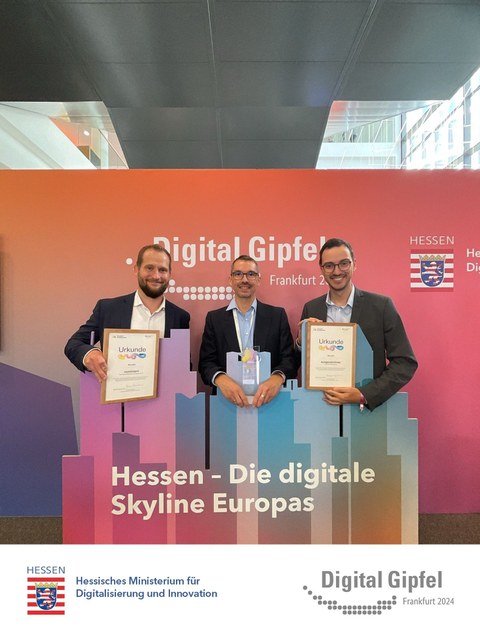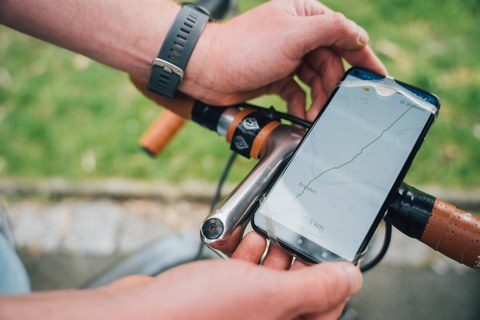Oct 21, 2024
Award for research on bicycle traffic: TU Dresden's MoveOn project honored with the German Mobility Award
The Audience Award of the German Mobility Award goes to the MoveOn project of TU Dresden’s Chair of Transport Ecology. The project also made it into the top 3 in the “Digital Transformation and AI” category.
Cycling is climate-friendly, cost-effective and makes an important contribution to the mobility revolution. To plan the future cycling infrastructure more efficiently and to better align it with demand, as well as to make cycling safer in general, transportation scientists at TU Dresden are analyzing cyclists' traffic data as part of the MoveOn project.
The project team collects, analyzes and evaluates GPS route data from cyclists and makes it available for municipal traffic planning. The researchers' commitment has now been recognized with the German Mobility Award Audience Award and a nomination for the shortlist (top 3) in the “Digital Transformation and AI” category.
Dr. Sven Lißner, head of the Cycling/BikeLab research group at the Chair of Transport Ecology, is exultant about the award: “The nomination for the award is an encouraging signal for the strengthening of cycling in Germany and motivates us to continue our research on digital concepts for bicycle-friendly cities and municipalities. Winning the Audience Award shows the great societal relevance of our research topic and also that we are inspiring a large number of people with our research.”
GPS bicycle traffic data for the mobility revolution
As part of MoveOn, transport researchers from TU Dresden are working with the TUD spin-off Flow.d GmbH and the Climate Alliance to develop a digital platform for bicycle traffic data. To do so, a phone appl is used to collect GPS data as part of a nationwide cycling campaign called STADTRADELN. The Chair of Transport Ecology evaluates the data and computes it for various application scenarios. As a result, the route data obtained can be used for assessments such as waiting times or source-destination patterns of cyclists.
Moreover, the collected data can be used for long-term analyses and projections, such as the average daily bicycle traffic volume over the course of a year. The resulting information and data is then made available as a visualization platform to more than 3,000 municipalities so that they can continue to develop their cycling infrastructure.
At the end of September, the STADTRADELN cycling campaign came to an end in Dresden – with record participation. More than 8,200 people took part in the campaign under the motto “Cycling for a good climate.” Collectively, they covered almost 1.5 million kilometers by bike. In our “Good Question” on cycling, TUD researchers Dr. Sven Lißner and Dr. Stefan Huber explain how STADTRADELN data can be used for traffic planning and how a bicycle traffic simulation can help with urban planning.
How can we make cycling safer and more popular? Good question on cycling © TU Dresden video team
The MoveOn project receives funding as part of the national cycling plan of the Federal Ministry of Digital and Transport (BMDV). The project is managed by the Federal Logistics and Mobility Office (BALM).
The German Mobility Award
The German Mobility Award is presented annually by the Federal Ministry of Digital and Transport (BMDV) in the categories of Digital Transformation and AI, New Mobility Solutions, Design, and Good Practice. It honors projects, applications and products in the mobility sector that use data processing systems to advance digital transformation.



